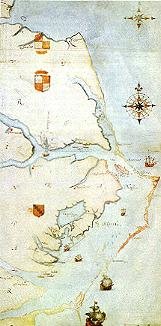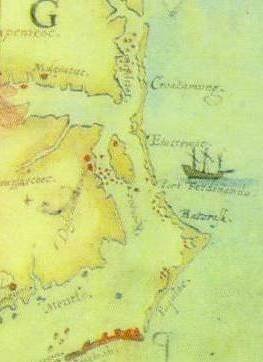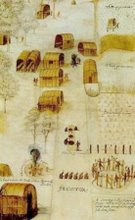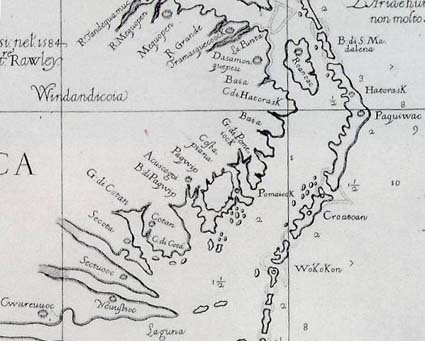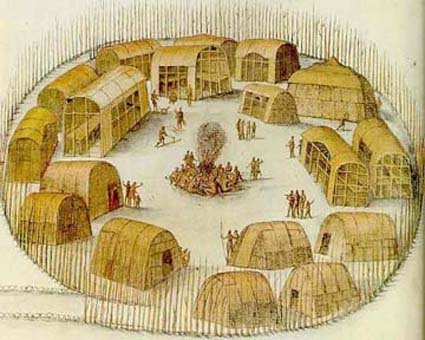Welcome to Historic Bath —North Carolina's First Town
European settlement near the Pamlico River in the 1690s led to the creation of Bath, North Carolina's first town, in 1705. The town's location seemed ideal with easy access to the river and the Atlantic Ocean 50 miles away at Ocracoke Inlet.
The first settlers were French Protestants from Virginia. Among early inhabitants were John Lawson, surveyor general of the colony and author of the first history of Carolina (1709), and Christopher Gale, first chief justice of the colony.
By 1708, Bath consisted of 12 houses and about 50 people. Trade in naval stores, furs, and tobacco was important, and Bath became the first port of entry into North Carolina. In 1707, a grist mill and the colony's first shipyard were established in the town. A library sent to St. Thomas Parish in 1701 became the first public library in the colony. The parish also established a free school for Indians and blacks.
Early Bath was disturbed by political rivalries, epidemics, Indian wars, and piracy. Cary's Rebellion (1711) was an armed struggle over religion and politics in the colony. An epidemic of yellow fever and a severe drought occurred in 1711. The Tuscarora War between the weakened settlers and the powerful Tuscarora Indians followed immediately. Bath became a refuge for the surrounding area until the Indian power was broken. Bath was also the haunt of Edward Teach, better known as the pirate "Blackbeard." An expedition of the British Navy killed him in a naval battle near Ocracoke in 1718.
Cont. Here:
http://www.nchistoricsites.org/bath/
Wednesday, April 23, 2008
Historic Bath, North Carolina
Posted by
Historical Melungeons
at
4/23/2008 02:37:00 PM
![]()
Labels: Blackbeard, john lawson, ocracoke, Pamlico, tuscarora war


